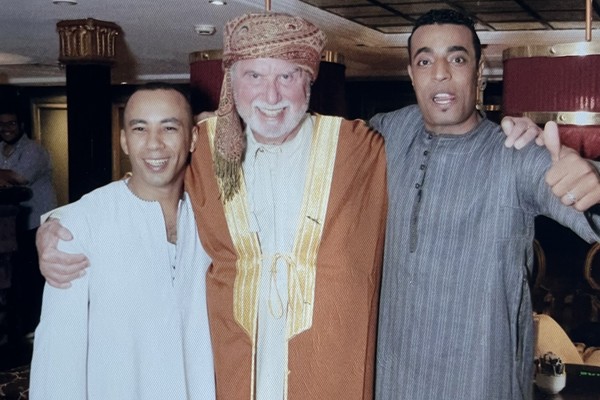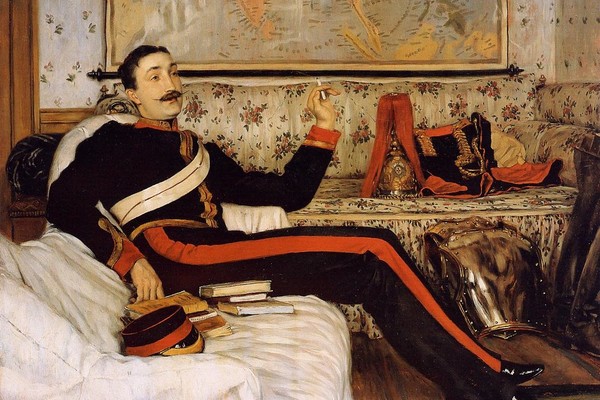Life on the Nile
by Christopher Joll
It may seem counter-intuitive of Noble Caledonia to invite a military historian specialising in the nineteenth century to fill the guest speaker slot on some of its Nile cruises of the SS Misr, but that is what has happened on five separate occasions since lockdown. And very pleased I was to accept the invitations, with a further cruise scheduled for next February.
But why have I been so keen for this repetition? First, because I have always been fascinated by the ‘Land of Sand’, and it can’t all be absorbed in one visit; second, because I know – from my own historical research and writings – that Egypt’s extraordinary history did not end with the fall of the last Pharaonic Dynasty in 30 BC; and, third, because I incorrectly thought that SS Misr was the paddle steamer featured in the 1978 film, Death of the Nile. It wasn’t, but it has a most interesting history nonetheless.
Built in England and shipped to Egypt in parts, SS Misr entered service with the Royal Navy in 1918. In 1938, she was decommissioned and presented by the British to Egypt’s last monarch, HM King Farouk I, who used it as a private royal yacht. Although, following the end of the Egyptian monarchy in 1952, SS Misr fell into disrepair, in 2006 she was completely overhauled and has been steaming up and down the Nile ever since.
But, after my first engagement on SS Misr, a cruise from Aswan to Cairo in early 2021, I can add one further and very important reason for my never turning down an invitation to join the ship: the SS Misr’s onboard staff. I can state without fear of contradiction that they are quite simply the best. This is partly because there is a very low turnover of passenger-facing crew, so there is great continuity of service; but it is also because the senior managers, the restaurant staff, and – most particularly – those behind the bar, are not only professional, conscientious and enthusiastic in everything they do, but they also genuinely want the passengers to have the best time possible.
You see, in addition to the extraordinary tours of the ancient sites along the route of the Nile, many of which are unique to this Noble Caledonia cruise, life on board the SS Misr can be summed up in two words: food and music. The former is ever changing and always delicious. The latter is an exciting after dinner bonus, with live performances by dance troupes invited to provide an audience-inclusive cabaret.
But there is more to the evening rhythm of the SS Misr than that provided by the unobstrusive thump of the engine, the frenzied gyrations of Whirling Dervishes or the sinuous jingling of belly dancers’ jewellery. Step forward the crew, and the bar staff in particular.
As the ship’s client manager has a note of all the passengers’ birthdays, these are unexpectedly and rather noisily celebrated during an evening meal. Towards the end of the meal, a candle-decorated chocolate cake is brought into the dining room to the accompaniment of clashing cymbals, the incessant beat of drums, and the lively chanting of the staff. It makes for an unforgettable occasion.
These are, however, intermittent entertainments. For those passengers who fancy shaking a leg after dinner, the bar staff – Mohsen, Abdullah and Yayah – are only too happy not only to demonstrate their not inconsiderable terpsichorean skills, accompanied by traditional Egyptian music and Western pop classics, but to invite passengers to join them.

Bar staff, Abdullah and Yayah, with the author on Egyptian night
Of course, not everyone wants to or is capable of so doing – and there is absolutely no pressure to join in. Indeed, on some of the cruises I’ve been on the passengers haven’t danced at all. But on one particular trip last year – later dubbed ‘the Dancing Cruise’ – nightly dancing became so popular that even octogenarian, lifelong non-dancers threw their inhibitions overboard, and bopped away every night into the small hours. Quite how they found the energy to get up at dawn, a few hours later, for a schedule visit to an historic monument remains a mystery, but an undeniable fact. I call it the SS Misr factor.
And what about my pre-dinner talks, for those not too tired from traipsing around the sites or shaking a leg after dinner the night before? The answer is that on all five Nile cruises I have been deployed on to date, with another coming up in May next year, there seems to have be considerable interest in what I had to relate in a series if fully-illustrated 45 mins talk.

Captain Frederick Gustavus Burnaby
These have included the bizarre and bloody story of the slave-warrior Mamelukes, who ruled Egypt for much of the Middle Ages and were only finally defeated by Napoleon in 1798; the almost risible saga of how the Rosetta Stone came to be possessed by the British in 1801, and the ongoing row about it that has simmered between England and France ever since; the unique moonlight charge of the Household Cavalry against the insurgent forces of Colonel Urabi at the Battle of Kassassin in 1882; the Flashmanesque exploits of Colonel Fred Burnaby, and his grisly end at the Battle of Abu Klea in 1885, during the Mahdist War; and, time permitting, the tragic account of the Nile Expedition of 1885-86 which failed by just two days to rescue General Gordon in Khartoum, and is rather unexpectedly memorialised on a back wall of the Temple of Philae near Aswan.

The forgotten British war memorial at the Temple of Philae
So, it’s not all pyramids and tombs that follow when Noble Caledonia’s SS Misr casts-off at the start of a cruise...
Click here for Nile trips on the SS Misr





